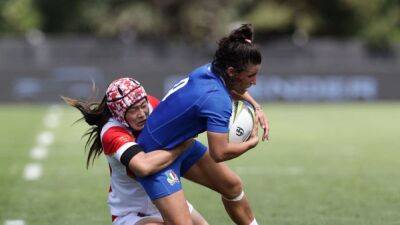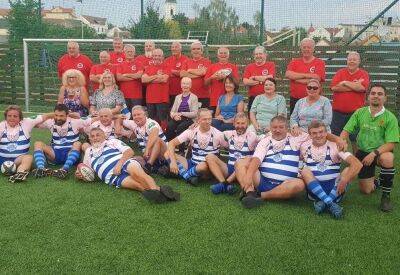Steve Thompson’s film should make rugby sit up and listen. But will it?
Risk is mostly a subjective judgment. For anyone scared of heights, even standing near a cliff-edge railing can feel daring. For others there is nothing to beat the surge of adrenaline that precedes a freefall parachute jump. Both are entirely legitimate human reactions. And, ultimately, who is to say that one is more rational than the other?
Until recently it has been worth recognising this whenever rugby’s future is being discussed. Then you switch on the television and watch Head On: Rugby, Dementia and Me, featuring Steve Thompson. A 2003 World Cup winner, still only 44, struggling to recall his daughter’s name and sifting through a boxful of mementoes from games which are a complete blank. For those of us who have known, liked and respected Thommo over many years it was heartbreaking.
Recent days have also yielded plenty of other grim updates, from Willie Stewart’s study of an increased risk of motor neurone disease among former Scotland internationals to the depressing neurological update recently supplied by the former England and St Helens rugby league prop James Graham. On Sunday at least three players were either knocked out or forced off prematurely after heavy blows to the head at Wasps. On Friday night I also watched Bristol’s Ellis Genge, among others, smashing into rucks at Ashton Gate and found myself wondering if the sport has ever exposed players to as many brutal collisions as it currently does.
So what next? According to James Drake it is no longer even a question. The rugby-loving philanthropist and founder of the not-for-profit Drake Foundation – which has put £2.2m towards funding detailed evidence-based scientific research into sport-related brain injuries – is adamant something fundamental has to





